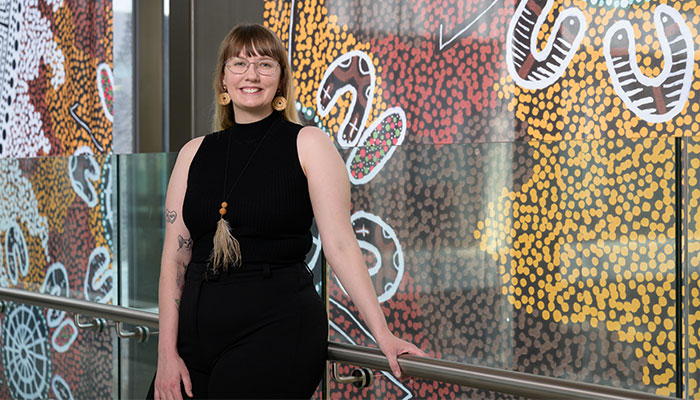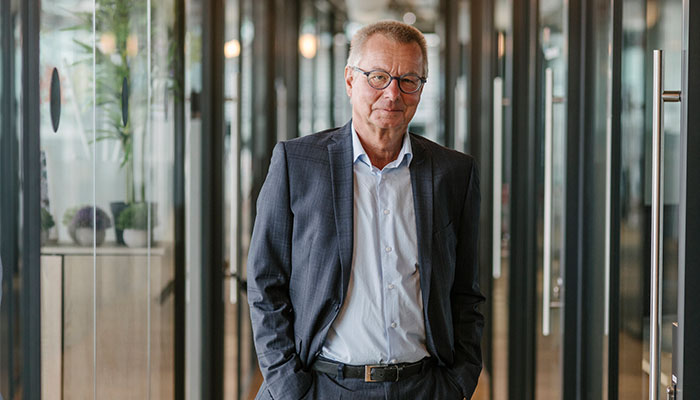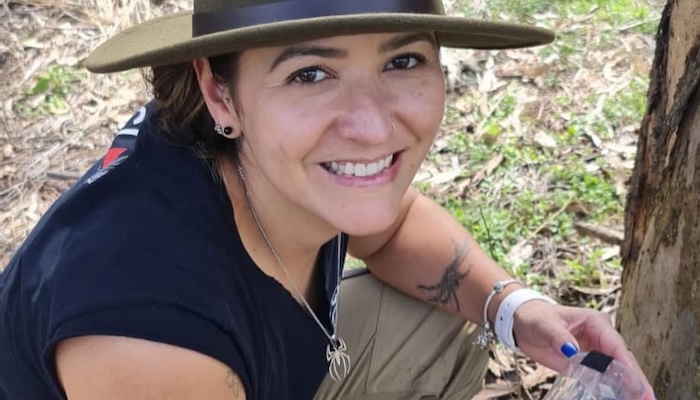Teacher: Dr Tamika Worrell is a Senior Lecturer at the Centre of Critical Indigenous Studies. She teaches a range of subjects in the Critical Indigenous Studies Major and the Master of Indigenous Education. This year she is also teaching the first year-unit Introducing Indigenous Australia, which sees massive enrolments across a range of faculties.

Groundwork: Tamika, pictured, holds a Bachelor of Arts, Master of Human Sciences and PhD in Education from Macquarie University.
Gold stars: In 2023 Tamika’s thesis, Prioritising Blak Voices: Representing Indigenous Perspectives in NSW English Classrooms, received the Vice Chancellor’s Commendation for Academic Excellence, and was further celebrated through the receipt of the AARE Ray Debus Award for Doctoral Research in Education. In 2024, alongside colleague Dr Zac Roberts, she received the Faculty of Arts Learning and Teaching Early Career Researcher (ECR) Award and highly commended ECR in the Research category.
How Tamika’s students describe her: A bit of a dork and someone who shares a lot of dad jokes, yarns and stories from her life, but also has high expectations of them.
What Tamika says:
Before formally entering academia, I spent over five years working in Indigenous student support in higher education. I did this while undertaking my graduate research studies and teaching sessionally. I loved the professional roles I had, as I was able to provide pastoral support and mentoring to Indigenous students, knowing I had been in their shoes tackling undergraduate studies. Many Indigenous students are the first in their families to attend university, which is something I relate to. Demystifying the university process and seeing students through was a big part of my role.
In Critical Indigenous Studies, our approach to transformative learning goes beyond traditional methods. We actively challenge students to reconsider their preconceptions and consider Indigenous knowledges to their respective fields. By fostering an environment of trust and reflection, we guide students through potentially uncomfortable topics, transforming these challenges into opportunities for growth and deeper understanding. The success of our teaching methodology is evident in the increased engagement and critical thinking demonstrated by our students.
What I love most about teaching, on a micro level, is that moment when the penny drops for students. When they start to understand how settler colonialism permeates everything in Australian society. In the bigger picture, I love seeing students transform from who they are at the beginning of the semester to who they are at the end. I learn a lot about teaching for transformation from Dr Madi Day, who convenes the undergraduate program in Critical Indigenous Studies.
I would like my students to look back fondly on the time they spent in class with me. I hope they carry the lessons they have learned. Even if it’s the small things, like remembering to capitalise ‘Indigenous’ and having a deeper understanding about the history of this country.
One of the challenges students face is the temptation and allure of generative AI as a shortcut. I think teachers can all play a role in debunking some of the thinking behind the use of generative AI, and get students to think critically about its use. In Critical Indigenous Studies, we make a point to discuss the range of problems that AI poses for Indigenous peoples and knowledges. Beyond that, showing kindness to students is also important – keeping in mind many students are balancing a range of competing priorities in the midst of a cost-of-living crisis.
I like to convey a lot of messages, but often the ones that come back around are key Indigenous philosophies such as Look after Country and Country will look after you.
I like to show students how Indigenous thinking can not only change and enhance perspectives and critical thinking but also save us from many of the crises we are facing in the world.
I don’t think there is such a thing as the perfect student. I like students who are open to thinking deeply about how they know the world that they know. I also love having Indigenous students in the classroom, and hope they see themselves reflected in the values I teach.
Discover more about the Centre of Critical Indigenous Studies.



